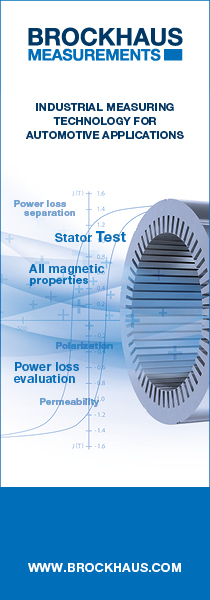Updated 27/03/19
This 2.5 day course draws on the experiences of two world-renowned electrical machines designers, and will introduce you to a topic they both agree will be critical to machine design in the future – harmonic filters.
Emer Prof Tim Miller and Dr John Reeve will lecture on the design of synchronous and induction electrical machines, and Dr Dennis Kampen will discuss passive filters for protecting motors against inverter caused motor failures.
We will also hear some of Tim’s career reminisences with some ‘Tales from the Smoking Motor’.
More detail to follow.
TRAVEL
Getting to Manchester is simple from across the UK, and Europe.
Bus and Train
Manchester can easily be reached by bus and train from across the UK.
Car
Manchester sits in the midlands, in the middle of a network of motorways that spread out across the UK.
Parking in Manchester isn’t so easy, but the hotel / venue does have a parking arrangement with a nearby car park.
Flights
Fly to Manchester Airport from many domestic and international airports.
From the airport, direct trains will take you to Manchester Picadilly train station, minutes walk from the venue hotel.
ACCOMODATION
Unfortunately, the Abode Hotel has bounced our arrangement for accommodation, so the best I can suggest is either to contact the Abode Hotel directly on 0161 247 7744 to see what rooms they have available, or to try other hotels nearby, such as:
- LaReserve ApartHotel
- StayCity ApartHotel
- DoubleTree by Hilton
- Holiday Inn Manchester City Centre
- Malmaison Manchester
- Ibis Styles Manchester Portland Hotel
- Gardens Hotel
and several others in reasonable distance.
DRAFT PROGRAMME
Tue 16 April
09:00 Registration opens
10:00 Welcome to Day 1 – Machines
12:00 Lunch
13:00 Day 1 – Machines continues
18:00 Day 1 closes
19:00 Course Dinner 1
21:00 (approx) Tales from the Smoking Motor, with Tim Miller
Wed 17 April
09:00 Welcome to Day 2 – Machines
12:00 Lunch
13:00 Day 2 – Harmonic Filters
18:00 Day 2 closes
19:00 Course Dinner 2
Thu 18 April
09:00 Welcome to Day 3 – Machines
13:00 Course finishes & Lunch
CONTENT
The programme will consist of:
- Tim Miller: Design of Electric Machines
- Some Fundamentals
- Synchronous Machines
- Wound-field
- Permanent-magnet
- Induction Machines
- Design Example
- John Reeve, FluxSys Ltd: Energy Conversion and Power Electronics
- Introduction to Electromagnetics
- Introduction to Energy Conversion
- Power Electronics
- Dennis Kampen, BLOCK Transformatoren-Elektronik GmbH: Passive Filters for Protecting Motors Against Inverter Caused Motor Failures
- Line Harmonics
- Filter Solutions
- Lifetime of Motors
- Differential Mode Motor Filters
- Common Mode Motor Filters
- Efficiency and Passive Filters
- Design of Passive Filters
- Winding Design
- John Reeve: Notes on Machine Design
- Brushless DC & Control
- Brushless AC & Control
- Switched Reluctance
DRESS CODE
The dress code for the event is business attire / smart casual.




